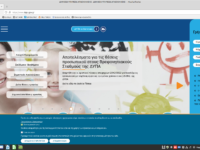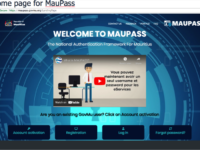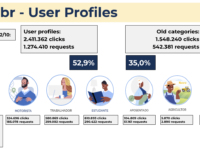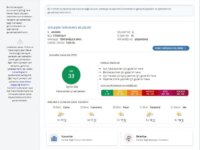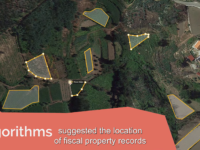Digital attacks such as online fraud, data misuse, phishing and cyberbullying are on the rise. Many victims do not know where to turn. The "Cybercrime Helpline", a call center service by the City of Vienna, offers fast and uncomplicated support. Existing services were integrated into rapid iteration cycles, organizational interfaces were created and the working method was established. The extension of the successful service by a highly topical subject area underlines the innovative approach.
Innovation Tag: Public Service Delivery
Launched in 2021, the Smart Agriculture Boxes Project aimed to address critical challenges faced by farmers in Mpumalanga South Africa through the creation of an growing box. These challenges included limited land availability, water scarcity, and the imperative for sustainable agricultural practices. The box has a water-efficient design, maximizes crop yields, and is mobile and relocatable.
The initiative recognized the profound impact of these issues on food security, poverty, and…
The City of Vienna offers a wide range of online services for the convenience of its citizens. The "Mein Wien" platform provides a personalized, one-stop solution for accessing city-related information, simplifying tasks such as registering a residence or paying dog license fees. It goes beyond traditional methods and ensures that citizens experience greater convenience and efficiency in their interactions with the government. With real-time updates on public transportation, weather, air…
The municipality of Joinville has seen a markable increase in its population, which have increased citizens’ demands for public services, particularly in the areas of education and health. Between 2019 and 2022, the municipality witnessed a 150 percent increase in new hires of public servants. To meet the increasing demand for hires and ensure that vacancies are quickly filled (particularly related to teachers or doctors), the Department of People Management, an organ of Joinville City Hall,…
The Public Employment Service (DYPA) in Greece has launched the PROSVASIS platform, a new digital platform which is based on the latest Web Content Accessibility Guidelines (WCAG) 2.1 AAΑ international standard. With the use of this platform persons with disabilities and especially persons with visual and hearing difficulties, physical and cognitive/mental disabilities have access to the content of the DYPA website thus promoting inclusiveness for these vulnerable social groups.
MauPass has been developed for citizens and businesses to transact easily and securely with Government online. It is a single window of authentication service to provide a layered approach towards e-Authentication implementation for all government and other e-services. This initiative follows an urgent need for better identity and access management for a trusted ecosystem.
Brazil’s gov.br website offers almost 5.000 public services and has more than 200 million monthly page views on average. With so many service options, it’s paramount to make them easily available. Under that mindset, the Ministry of Economy developed two important improvements to its usability: the first is the use of AI to recommend services based on the citizen's browsing history. The second was creating User profiles as a way of finding services based on the citizens’ journeys.
In order to provide citizens with access to many residence-related services from a single point, rather than having to access each service separately, "My Residence" was launched on 9 March 2021. Under the Digital Transformation Office, many services related to the residence address of citizens are offered via the e-Government Gateway by 9 central government institutions as well as municipalities and utility companies.
BUPi, is a one-stop shop, developed to integrate different sources of information about property ownership and land management, gathering knowledge on the, until now, unknown land areas and sharing this knowledge with several government agencies in order to create economic and social value for citizens and for the country. BUPi ensures a simple and digital solution that citizens can use to identify and geo-reference their properties, according to the once-only principle.
Case Study
Becoming Agile: a way to deliver high quality products and solve long standing reform challenges in…
To improve the Government's response to problems and delivery of products, the Office of the Prime Minister of Croatia introduced Agile methodology and Agile teams, which mimicked startups in using iterations and learning to inform their next move. All governments have policy challenges that seem too complex to be solved. These challenges span across several departments, have some areas where jurisdiction of departments is unclear, and any intervention would have serious impact on all citizens.


